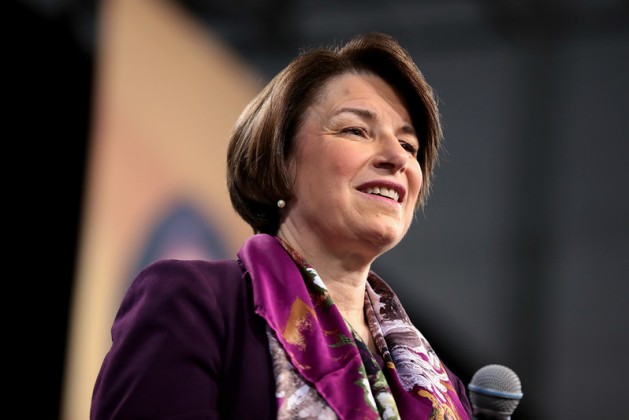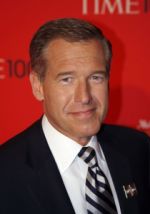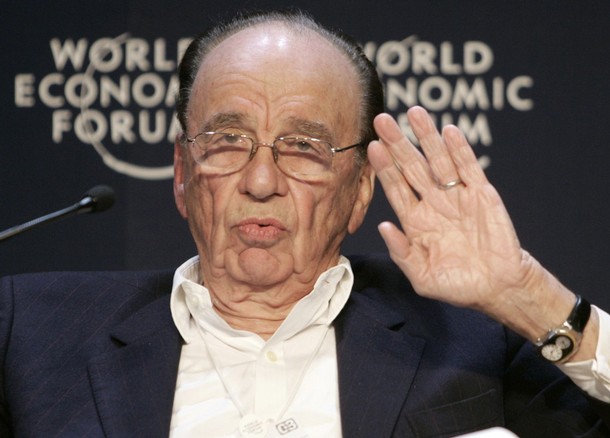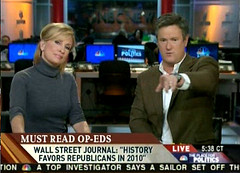
Amy Klobuchar earlier this year. Photo (cc) by Gage Skidmore.
Previously published at WGBHNews.org.
Amy Klobuchar was having her moment. The Minnesota senator, an also-ran since entering the presidential race in the middle of a snowstorm last February, turned in her strongest debate performance Tuesday night. And now she was pressing her advantage, appearing on all three cable news outlets to repeat her message that Elizabeth Warren isn’t the only candidate with big ideas. Moderates can have them, too.
“There’s not just one idea out there. There are many,” she said on CNN. Klobuchar offered some pointed criticism of Warren as the night wore on, telling MSNBC’s Chris Hayes, “Her way or no way is how it feels every single time,” and Fox News’ Shannon Bream, “Your idea is not the only idea.”
Following Tuesday’s marathon Democratic debate, I spent an hour — 20 minutes each — with CNN, MSNBC and Fox News to get a feel for the instant take on what had just transpired. What I heard may or may not shape the conversation about the campaign in the days ahead. But the consensus was that Klobuchar and Pete Buttigieg had a good night — and that, given Joe Biden’s continued inability to take charge of the race, one of them may emerge as the moderate challenger to Warren and Bernie Sanders, the leading progressives.
“To the extent that they gain, it could be at Biden’s expense,” Democratic analyst David Axelrod said on CNN. Added his nonpartisan colleague Gloria Borger: “In some ways Buttigieg explains Biden better than Biden explains Biden.”
On MSNBC, the message was the same, with Washington Post political reporter Robert Costa saying there was “a real impression tonight about Mayor Buttigieg trying to compete for that Biden vote.”
On Fox News, Bret Baier showed some clips of Biden’s “word salad” performance and said, “Joe Biden did not have a good night.” If Biden continues to fade, Baier added, Democrats will want to have the option of a moderate like Klobuchar or Buttigieg to go up against Warren or Sanders — who, Baier said (this was Fox, after all), are part of “the progressive far left.”
The big question is whether these predictions of a Klobuchar and/or Buttigieg breakout will become reality, or if they’re wishful thinking. Klobuchar may not even qualify for the next debate. The media thrive on conflict and a simple story line. In the most recent polls, Warren and Biden have established themselves as the front-runners, with Sanders not too far behind. A Biden-versus-Warren race satisfies the media’s desire for a clash between an establishment moderate trying to hang on against an insurgent progressive — but not if Biden can’t hold up his end.
Thus, Tuesday was the best opportunity for the second-tier candidates to emerge, with Klobuchar and Buttigieg making the most of it.
Buttigieg, oddly enough, had his best moment during the debate by going after Beto O’Rourke, who has been a non-factor in the campaign. O’Rourke is pushing a mandatory gun buyback plan that Buttigieg has called unworkable as well as a distraction from more modest measures that might actually get passed.
“Let’s … lead and not be limited by the polls and consultants and focus groups,” O’Rourke told Buttigieg during the debate — which brought a withering retort from Buttigieg.
“I don’t need lessons from you on courage, political or personal,” Buttigieg said, a response that, among other things, was a not-so-subtle reminder of his military service.
During a post-debate appearance on CNN, Chris Cuomo tried to get Buttigieg to expand on his criticism of O’Rourke, but Buttigieg wasn’t going there. Instead, he stuck with his talking points that he is “the best positioned to beat Donald Trump,” and that Democrats win when they embrace generational change.
Klobuchar, on the other hand, was only too happy in her post-debate interviews to keep bashing Warren, for whom she has “a lot of respect.” (But of course!) In her interview with Chris Hayes, Klobuchar cast her own proposals to add a public option to the Affordable Care Act and rein in the pharmaceutical industry as ideas as worthy of discussion as Warren’s embrace of Medicare For All — and, ultimately, more practical. Of Warren’s oft-repeated contention that the moderates aren’t willing to fight, Klobuchar added, “I’ve really had it with that.”
Next it was on to Fox News, where Klobuchar repeated her criticisms in an interview with Shannon Bream. Klobuchar also made a pitch for right-leaning Fox News viewers who would presumably be out of reach for her more progressive adversary.
“There are a lot of moderate Republicans who agree with me,” she said, “and a lot of independents, and even some conservative Republicans.”
Thankfully, Klobuchar left out the right-wing conspiracy theorists who watch Fox’s prime-time lineup every night.
My own take? Warren was not perfect, but she was basically OK. The media are throwing a fit, not because she won’t answer their question about the tax increases that would be needed to pay for Medicare For All, but because she refuses to accept their framing. She’s answered the question: Medicare For All would result in lower overall costs for the middle class. She might be wrong, but you can’t call that an evasion.
Biden was so-so, showing some emotion over the false smears the Trump camp has directed at him and his son Hunter over Hunter’s business interests in Ukraine and China. Biden’s yelling at Warren and waving his hand in her face was, uh, interesting.
And Sanders, two weeks after suffering a heart attack, turned in maybe his best debate performance — making his points with his usual gusto, but also showing a warm and funny side, especially when Cory Booker noted that Sanders is in favor of medical marijuana.
“I’m not on it tonight,” Sanders responded.








